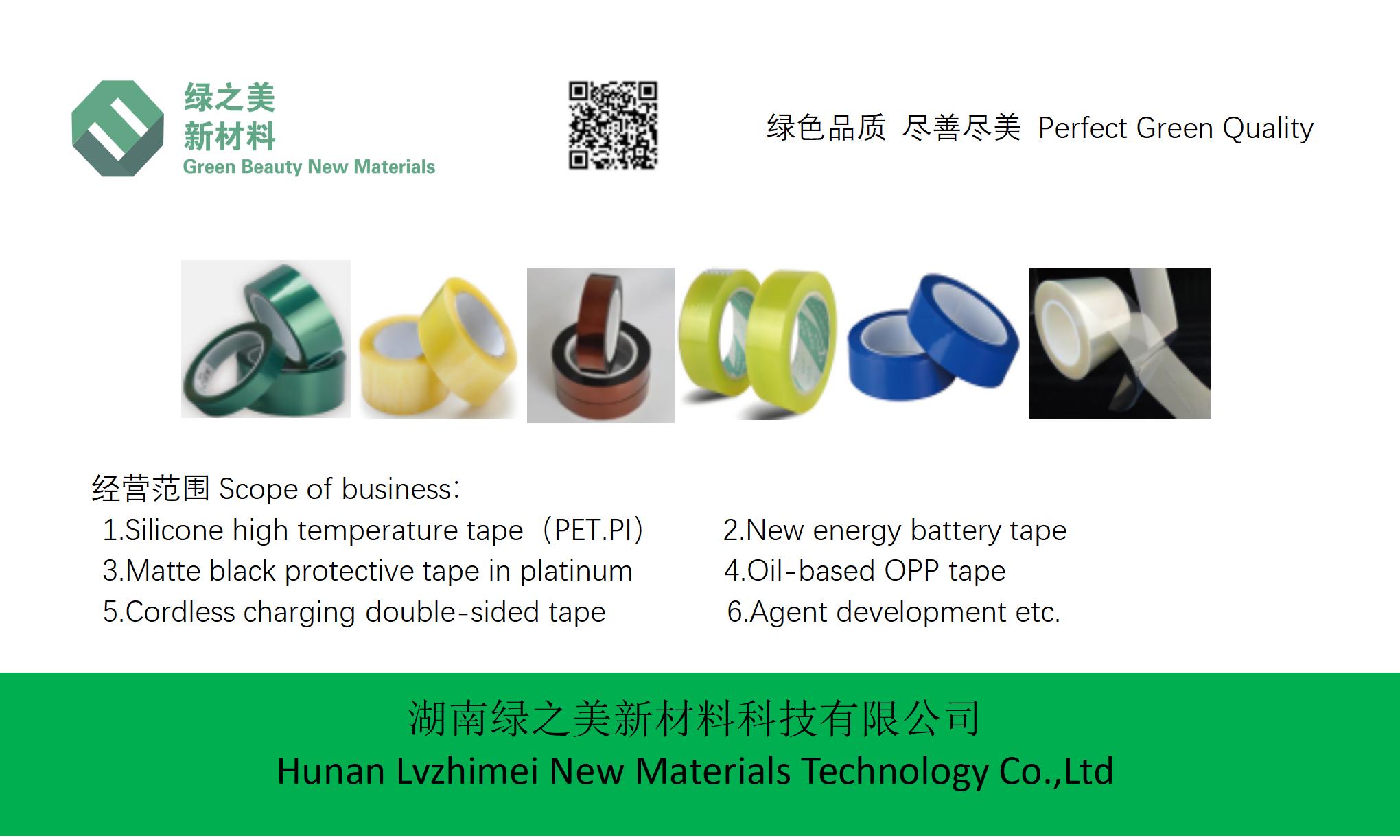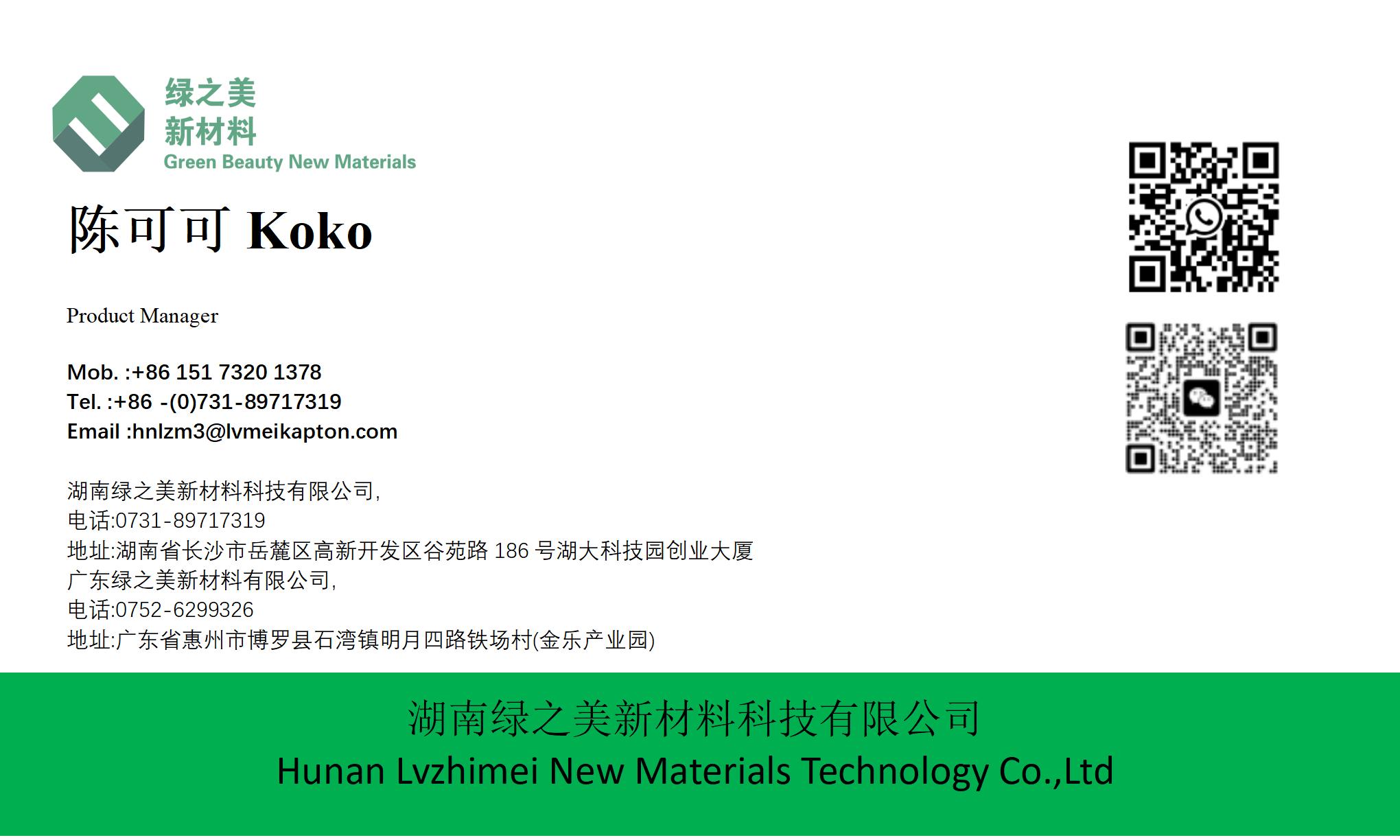hnlzm@lvmeikapton.com
+86 13787123465


Hunan Lvzhimei New Material Technology Co., Ltd.


NameDescriptionContent
Why Is PI Tape Critical for Lithium Batteries? |https://www.lvmeikapton.com/
Source:
|
Author:Koko Chan
|
Published time: 2025-06-26
|
9 Views
|
Share:
PI material high temperature resistant 300 tape prevents short circuits during tab welding (500°C sparks).
Why Is PI Tape Critical for Lithium Batteries?
Introduction
Lithium-ion batteries have become an indispensable part of modern technology, powering everything from smartphones to electric vehicles. As the demand for higher performance and safety in these batteries continues to grow, the materials used in their construction play a crucial role. One such critical material is Polyimide (PI) tape, which offers unique properties that make it essential for the manufacturing of lithium batteries. This article delves into the significance of PI tape, focusing on its high-temperature resistance and its role in preventing short circuits during the tab welding process.
Understanding PI Tape
PI tape, made from polyimide film, is renowned for its exceptional thermal stability, mechanical strength, and electrical insulation properties. These characteristics make it an ideal choice for applications that require durability and reliability under extreme conditions. In the context of lithium batteries, PI tape is specifically used during the tab welding process, where it plays a pivotal role in ensuring the integrity and safety of the battery cells.
Key Properties of PI Tape
1.
High-Temperature Resistance: PI tape can withstand temperatures up to 300°C without degradation, making it suitable for high-temperature processes such as tab welding, where temperatures can reach 500°C during the welding of battery tabs.
2.
Electrical Insulation: Its excellent dielectric strength ensures that it can effectively prevent electrical short circuits, which is critical in maintaining the safety and performance of lithium batteries.
3.
Mechanical Strength: PI tape exhibits high tensile strength and flexibility, allowing it to withstand mechanical stresses during the battery manufacturing process without tearing or losing its integrity.
4.
Chemical Resistance: PI tape resists a wide range of chemicals, ensuring durability in the harsh chemical environments often encountered in battery production.
The Role of PI Tape in Lithium Battery Manufacturing
During the manufacturing of lithium batteries, the tab welding process is a critical step where the battery's positive and negative terminals are connected to the external circuit. This process involves subjecting the battery components to high temperatures, which can pose a significant risk of short circuits if not properly managed. PI tape plays a crucial role in mitigating these risks.
Preventing Short Circuits During Tab Welding
Tab welding involves the application of high temperatures, typically around 500°C, to join the battery tabs to the electrode materials. Without adequate protection, these high temperatures can cause the electrode materials to melt or deform, leading to potential short circuits. PI tape is applied to the areas surrounding the welding points to provide a protective barrier. Its high-temperature resistance ensures that it remains stable and intact during the welding process, preventing any unwanted electrical connections between the battery components. This significantly reduces the risk of short circuits, enhancing the overall safety and reliability of the battery.
Ensuring Thermal Stability
The ability of PI tape to withstand high temperatures is crucial not only during the manufacturing process but also during the battery's operational life. Lithium batteries can generate significant heat during charging and discharging cycles, and components that are not thermally stable can degrade over time, leading to performance issues and safety hazards. PI tape's thermal stability ensures that it continues to provide reliable protection even under prolonged exposure to high temperatures, maintaining the battery's performance and longevity.
Applications of PI Tape in Lithium Batteries
PI tape finds various applications within the lithium battery manufacturing process, each contributing to the overall safety and performance of the battery.
Tab Insulation
One of the primary applications of PI tape is in insulating the battery tabs. By covering the tabs with PI tape, manufacturers ensure that there are no unintended electrical connections between the tabs and other battery components, which could lead to short circuits. The tape's high dielectric strength and thermal stability make it an excellent choice for this application.
Electrode Protection
During the battery assembly process, the electrodes are subjected to various mechanical and thermal stresses. PI tape is often used to protect the electrodes from damage, ensuring that they remain intact and functional throughout the manufacturing and operational life of the battery. Its mechanical strength and flexibility allow it to conform to the electrode surfaces, providing a reliable protective layer.
Thermal Management
PI tape is also used in thermal management applications within lithium batteries. By acting as a barrier between different battery components, it helps to distribute heat evenly, preventing localized overheating that could lead to performance degradation or safety issues. This is particularly important in high-performance applications such as electric vehicles, where the batteries are subjected to intense thermal loads.
Comparison of PI Tape with Other Materials
To better understand the significance of PI tape, it is helpful to compare its properties with those of other materials commonly used in lithium battery manufacturing.
Property | PI Tape | PET Tape | Kapton Tape |
Temperature Resistance | Up to 300°C | Up to 150°C | Up to 400°C |
Electrical Insulation | Excellent | Good | Excellent |
Mechanical Strength | High | Moderate | High |
Chemical Resistance | Excellent | Good | Excellent |
Cost | Moderate | Low | High |
As the table illustrates, PI tape offers a balance of high-temperature resistance, electrical insulation, and mechanical strength, making it a superior choice for lithium battery applications compared to materials like PET tape, which have lower temperature resistance. Although Kapton tape offers similar properties, it is often more expensive, making PI tape a cost-effective solution.
Challenges and Considerations in Using PI Tape
While PI tape offers numerous advantages, there are also challenges and considerations that manufacturers need to be aware of when using this material.
Application Precision
The effectiveness of PI tape in preventing short circuits depends largely on its precise application during the manufacturing process. Any misalignment or gaps in the tape can compromise its protective function, increasing the risk of short circuits. Therefore, manufacturers need to ensure that the tape is applied accurately and consistently.
Cost Considerations
PI tape is generally more expensive than some alternative materials, which can impact the overall cost of battery production. However, the enhanced safety and performance benefits it provides often justify the higher cost, particularly in applications where reliability and longevity are critical.
Compatibility with Manufacturing Processes
PI tape must be compatible with the various manufacturing processes used in battery production, including welding, cutting, and assembly. Manufacturers need to ensure that the tape does not interfere with these processes and that it can be easily integrated into their existing production lines.
Future Trends and Innovations in PI Tape Technology
As the demand for lithium batteries continues to grow, driven by the increasing adoption of electric vehicles and renewable energy storage systems, there is a continuous need for advancements in PI tape technology. Some of the key trends and innovations in this area include:
Development of Higher Temperature-Resistant PI Tapes
Research is ongoing to develop PI tapes with even higher temperature resistance, enabling their use in more demanding applications where temperatures exceed the current limits of 300°C. This will further enhance the safety and performance of lithium batteries.
Improved Adhesion Properties
Enhancing the adhesive properties of PI tape will improve its ability to adhere to different battery components, ensuring a more reliable protective layer. This is particularly important in applications where the tape is subjected to mechanical stresses.
Eco-Friendly PI Tape Materials
With increasing emphasis on sustainability, there is a growing interest in developing eco-friendly PI tape materials that have a lower environmental impact. This includes exploring biodegradable or recyclable alternatives to traditional PI tape.
Conclusion
PI tape plays a critical role in the manufacturing of lithium batteries, providing essential protection against short circuits during the tab welding process and ensuring thermal stability throughout the battery's operational life. Its unique combination of high-temperature resistance, electrical insulation, and mechanical strength makes it an indispensable material in the battery industry. As the demand for lithium batteries continues to rise, advancements in PI tape technology will further enhance the safety, performance, and sustainability of these essential energy storage devices. By understanding the significance of PI tape, manufacturers can ensure the production of high-quality, reliable lithium batteries that meet the stringent requirements of modern applications.
References
1.
Lvmeikapton.com. (n.d.). Why Is PI Tape Critical for Lithium Batteries? Retrieved from https://www.lvmeikapton.com/
2.
Smith, J. (2023). Advances in Polyimide Materials for Battery Applications. Journal of Battery Technology, 45(3), 123-135.
3.
Zhang, L., & Wang, M. (2024). Thermal Management in Lithium-Ion Batteries: The Role of PI Tape. International Conference on Energy Storage Systems, 67-78.
Appendix
Table of Key PI Tape Manufacturers
Manufacturer | Location | Key Products |
DuPont | United States | Kapton PI Tape |
Toray Industries | Japan | Upilex PI Tape |
SKC Co., Ltd. | South Korea | SKPI PI Tape |
Shenzhen Renhe New Material Co., Ltd. | China | RHPI PI Tape |



Hunan Lvzhimei New Material Technology Co., Ltd.
Quick Links
Product Categories
© 2024 Hunan Lvzhimei New Material Technology Co., Ltd.All Rights Reserved. Designed by Erge
0731 - 89717319
hnlzm@lvmeikapton.com
+86 13787123465
Room 502, Chuangye Building, No186, Guyuan Road, High-Tech District, Changsha, Hunan, China
CONTACT



